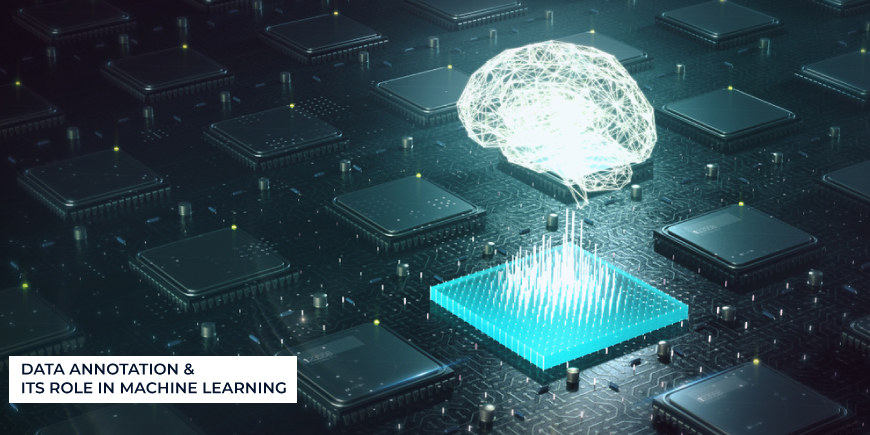
Data Annotation & Its Role in Machine Learning
Aisha Aslam
What is Data Annotation?
Data annotation is the process of categorizing and labeling data for AI applications.
Large amounts of training data are required to create an AI or machine learning model that behaves like a human. A model must be trained to grasp specific information in order to make judgments and take action. Training data must be accurately categorized and annotated for a specific use case.
Data Annotation Services may construct and improve AI systems by using high-quality, human-powered data annotation. Product recommendations, appropriate search engine results, computer vision, speech recognition, chatbots, and other features improve the consumer experience.
Why is Data Annotation important?
In the field of machine learning, data annotation is vital. It is a critical component of any AI model's performance because an image recognition AI can only detect a face in a photo if there are many photos already labeled as "face."
Without annotated data, there is no machine learning model.
The workhorse of AI and ML algorithms, data annotation, generates a highly accurate ground truth that has a direct impact on algorithmic performance. Annotated data is essential for AI and ML algorithms to accurately comprehend and detect input data.
Data Annotation Drives Smart Technology
Smart technology and smart living have become an inseparable part of our everyday lives. Everything is powered by Artificial Intelligence (AI) and Machine Learning, from self-driving cars to smart and prompt replies to emails, calculating arrival time using GPS apps, to the next music in the streaming queue (ML).
To accomplish all of this, AI and machine learning models must be fed with a large amount of data. The foundation of AI and machine learning algorithms is data. Computers are incapable of processing visual information in the same manner that human brains do. To make decisions, a computer has to be told what it's interpreting and given context. These relationships are made by data annotation.
How Does Data Annotation Help?
Data annotation ensures the scalability of AI and machine learning initiatives. It is the task of humans to recognize and label specific data, photos, and videos in order for machines to identify and classify information in the same way that humans do – and to make predictions.
If data labeling is not done, ML algorithms will struggle to compute the necessary properties.
The Benefits Of Using Data Annotation:
The benefits of using data annotation for AI and machine learning models are numerous.
1. Data annotation allows algorithms to have a better knowledge of the meanings of things, allowing them to perform better.
2. AI and machine learning models have improved precision.
A computer vision model performs differently on an image in which multiple things have been accurately tagged versus an image in which objects have not been labeled or have been labeled incorrectly. As a result, the higher the precision of the model, the better the annotation.
3. Model training on a fast track
For a data analysis services provider, the time to complete a machine learning project was decreased by 54%. A data annotation consultant analyzed traffic signal footage to identify and classify automobiles based on their category, model name, color, and travel direction. An AI & ML model can only grasp what it needs to do with the data it is fed by using data annotation. As a result, the model quickly learns to apply the correct treatment(s) to the labeled data and provides meaningful results.
4. Labeled datasets can be easily created.
Preprocessing, which is a key stage in the machine learning dataset construction process, is made easier by data annotation. Using a combination of manual and automated workflows, 40,000+ photos were categorized and fed into machine learning models in one famous scenario.
It aided a Swiss data analysis solutions company in resolving the problem of food waste for major hotels and restaurants. As a result of regularising data annotation services, enormous labeled datasets are created over which AI and ML models can work.
5. End-user experience that is more streamlined
Well-annotated data benefits AI system users since it gives a consistent experience. An efficient intelligent product addresses the issues and doubts of consumers by providing appropriate guidance. Annotation helps to improve the ability to act in a relevant manner.
6. Improvements to the AI engine's reliability throughout the time
Only when there is a flawless data annotation mechanism to augment the models with labeled data does the concept that increasing data volume increases AI model accuracy and precision hold true. As the volume of data grows, so does the reliability of AI systems.
7. Gives you the ability to scale up your implementation.
Multiple requests' feelings, intentions, and behaviors are accommodated via data annotation. Annotated data makes it easier to create correct training datasets, allowing AI engineers and data scientists to scale mathematical models for a variety of datasets of any size.
Conclusion
Only by combining human knowledge and smart tools to build high-quality training data sets for machine learning can the correct application of data annotation be realized. To help AI & ML model construction and avoid it from falling catastrophically, businesses need to have robust data annotation capabilities. Humans have an advantage over computers because we can deal with ambiguity, understand intent, and a variety of other factors that affect data annotation.
Whether you construct a high-performing AI/ML model as a solution to a complicated business challenge or spend time and resources on an unsuccessful trial is determined by accurately labeled data. When you don't have the time or resources to implement these capabilities yourself, consulting Data Annotation Consultants is a good idea.
Outsourcing Data annotation Services enable you to swiftly develop your AI capabilities and conceive machine learning solutions to match market requirements and satisfy client expectations, in addition to saving time and money.

 Let’s get started
Let’s get started



 info@triyock.com
info@triyock.com